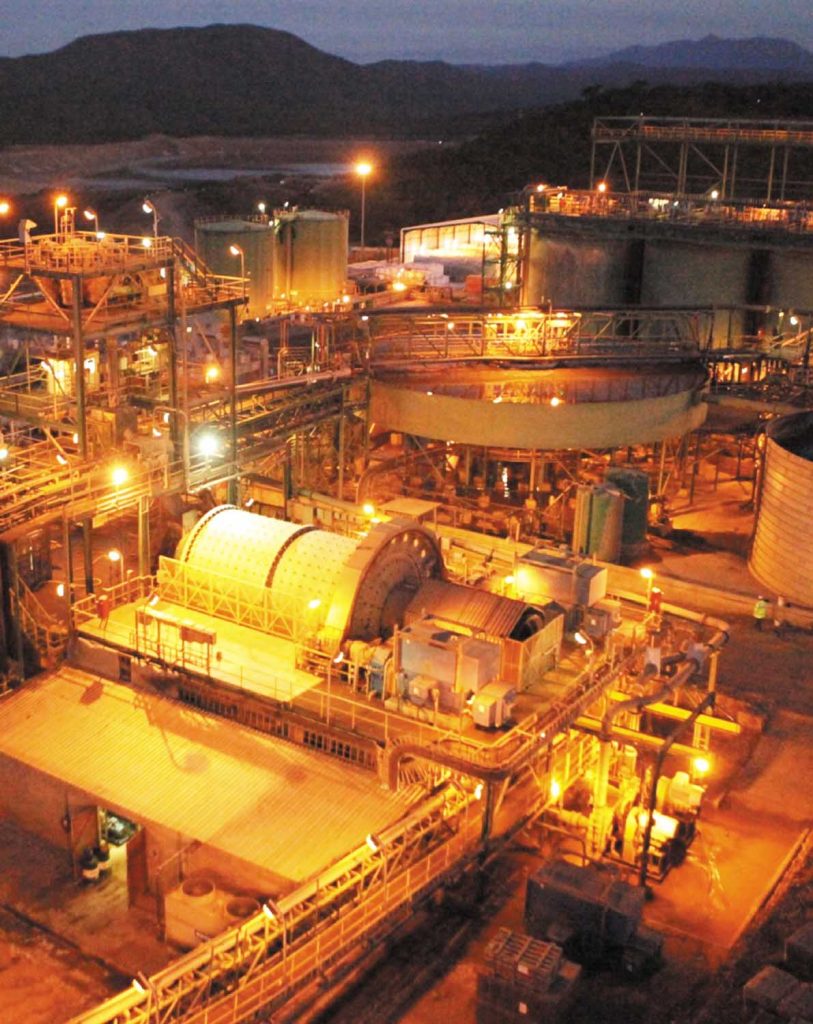
Mining
Potential restart of uranium production at Kayelekera mine scheduled for next year
February 15, 2024 / Marcel Chimwala

ASX-listed Lotus Resources says it is finalising preliminary work programmes to allow an optimal restart of production at its Kayelekera Uranium Mine in Karonga in light of the positive market outlook for the yellow cake which has seen uranium prices rising.
The uranium market continues to improve, with the uranium spot price maintaining levels above US$90/lb U3O8e in recent weeks, and recently rising to US$104/lb. The spot price has increased by over 100% since January 2023 driven by a shortage of supply in the spot market that has resulted in low traded volumes along with strong demand from financial groups, traders and utilities.
Lotus MD Keith Bowes says in the Company’s quarterly report for the quarter ended December 31, 2023 that the current uranium pricing and potential undersupply in the medium term are driving a revised timeline for the Kayelekera restart.
Bowes explains that Lotus plans to engage a debt adviser shortly to test the market for debt for Kayelekera.
He says: “The Kayelekera work streams have been prioritised to enable that a Final Investment Decision can be made as quickly as possible.”
“Lotus remains focused on restarting the Kayelekera Project as soon as practicable to benefit from the current strong and increasing uranium prices. As such, Lotus is testing the market for debt and is focused on undertaking the necessary planned activities to prepare Kayelekera for a potential restart of production in late 2025 when the supply gap for the nuclear utilities is forecast.”
Lotus is looking to meet the growing supply gap in the nuclear utilities’ reported fuel coverage profile which is supported by the increase in enquiries that the Company has received over recent months from the utilities.
This target start date will depend on a number of conditions being met and the successful conclusion of the described programmes including finalising financing and offtake for the project, which will involve appointing a debt advisor to assist in the financing process.
Lotus will also need to sign potential offtake agreements with suitable parties that can strengthen its position and complete negotiations and signing of a Power Supply and Power Implementation Agreement (PSA & PIA) with the Electricity Supply Corporation of Malawi (Escom), which is key to achieving reduced operating costs announced in the Company’s Restart Definitive Feasibility Study (DFS) in August 2021.
Bowes says the Company has planned a Front-end Engineering and Design (FEED) program leading directly into the detailed engineering design phase for the execution of the restart plan.
He explains that these studies will confirm the upfront capital cost estimate for the plant refurbishment and new equipment installations such that a control budget can be prepared for the restart.
The studies will also validate the 15-month timeline initially determined for the refurbishment programme for the plant, update the operating costs from the Definitive Feasibility Study including incorporating new quotes from suppliers, and determine long lead items and early works programs.
Bowes says: “With regards to offtake, Lotus has received an increased volume of enquiries from North American utilities, with the understanding that a significant, if not all, of the planned production from the major current producers has already been sold and that the utilities now need to approach the next tier of suppliers, such as Lotus, to meet their future demands.”
“The Company plans to complete these activities within the next six months.”
Kayelekera Mine Development Agreement
During the quarter under review, Bowes says Lotus continued negotiations with the Malawi Government on the Mine Development Agreement (MDA) for Kayelekera, which will set the fiscal regime in which the Project will operate and is one of the inputs the Company is seeking prior to making its Final Investment Decision for the restart of Kayelekera.
He reports that during the quarter, he travelled to Malawi to meet with the Ministers of Mining and Finance, and Attorney-General to progress the MDA, and attended a meeting of the Parliamentary Sub-Committee for Natural Resources and Climate Change.
Bowes says a meeting was also held with international industry heads and representatives of the US State Department, UK, EU and Australian High Commissioner and representatives from the World Bank.
“Good progress was made on several key discussion points, with a small number of elements still requiring further clarification and discussion. The Malawi Government representatives continue to express eagerness to finalise the MDA as soon as possible, recognising the importance of mining to the future growth of the Malawian economy and the servicing of the International Monetary Fund credit facility,” he says.































